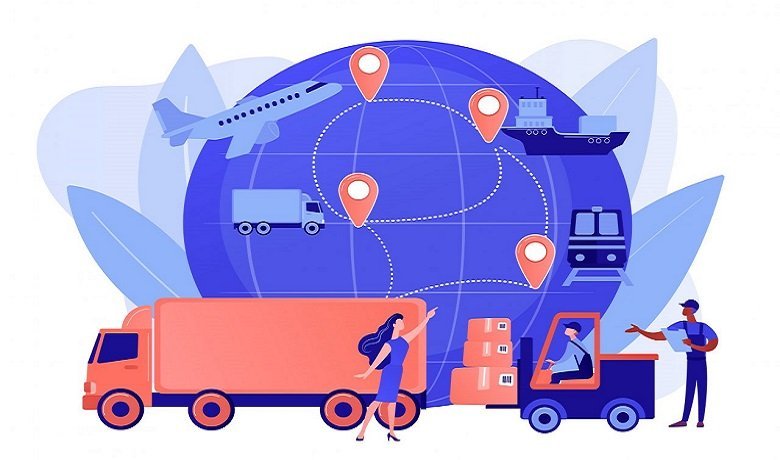Current-day technology is moving towards blockchain technology for future growth. We have heard of numerous advantages of blockchain technology, but what about the disadvantages? Are you aware of the cons of this particular model of the transaction?
Advantages Of Blockchain Technology
With this article, we are here to help you understand both advantages and disadvantages of blockchain technology. Let us learn about the advantages first.
1) Transparency:
The current world technology believes in transparency, but that is one issue the world is facing. Blockchain technology works on decentralization and removes the third-party authority from the scenario. Once the concept of centralization is removed from an organization, transparency comes to the forefront, leaving zero centralized authority.
2) Traceability:
When the transfers are made with the help of a centralized system, traceability of it is hard to follow up. However, when we go for blockchain technology, the supply chain gets way more transparent than it could ever be. It helps track the supply chain and ensure that nothing is misused and replaced.
3) Decreased Cost:
To recover the company’s recent course of spending money, one can change to the blockchain. The fact that blockchain technology does not have a centralized authority reduces the concept of spending money on it. It is seen that less interaction is required whenever it is about validating any transaction, which further removes the idea of wastage of money and time.
4) Increased Efficiency:
Blockchain optimizes time-consuming processes to enhance efficiency. The use of mechanization also eliminates human mistakes. By offering a reallocation to record operations, the digital ledger enables all of this feasible. Anything will become very efficient and speedy due to process simplification and mechanization.
5) Security:
Blockchain provides technology solutions that make it better than any other transaction system when we talk about security. The consensus mechanism must be used to concur on any ever documented operations. Each payment is encoded and contains a hashing algorithm to relate it to the previous one. The notion that every node duplicates all operations ever conducted on the system adds to the privacy.
Disadvantages Of Blockchain Technology
1) A Distributed Computing System Is Not The Same As A Blockchain
Blockchain technology is a system that runs on servers. The characteristics of the nodes determine the blockchain’s quality. Bitcoin’s blockchain, for instance, is robust and encourages nodes to connect. The same cannot be said for a blockchain system in which nodes are not compensated.
This indicates it was not a distributed computing system in which the connection is not reliant on the nodes’ activity and cooperation. On the other hand, a distributed computing system attempts to guarantee that activities are verified per the rules, recorded, and have the procedural record for each operation.
All of those acts are analogous to the blockchain, but none of them has the same level of cooperation, cooperation, or mirroring. While blockchain is a decentralized ledger, it lacks the features that allow a distributed computing system so advantageous to businesses.
2) Scalability Is One Of The Issues
Blockchain is not quite as extensible as its centralized counterparts are. If you have ever used the Bitcoin blockchain, you are well aware that transactions delay network latency. This vulnerability is connected to blockchain system scalability concerns. Said, the more the users or nodes that connect devices, the greater the odds of it decelerating!
Most Important:- Advantages And Functionalities Of Dynamics Portal
However, the way public blockchain operates is changing at an accelerating rate. Scalability alternatives are also incorporated with the Bitcoin network with the correct technology increase. The idea is to conduct transactions off-chain, keep, and consume data on the blockchain.
3) Specific Blockchain Solutions Use Excessive Amounts Of Power
Bitcoin was the first to use blockchain technology. It employs the Proof-of-Work trust model, which entrusts the hard labor to the mining. The miners are rewarded for solving complex mathematical tasks. The significant energy demand renders these complicated mathematical equations unsuitable for real-world applications.
The miners must solve issues each moment the database is refreshed with a particular transaction, which requires a burst of power. Not that all blockchain systems, however, operate the same way. Public blockchain or restricted systems, for example, do not have such issues since the amount of devices in the system is controlled. Other agreement methods have successfully handled the challenge.
4) Data Is Immutable
The immutability of statistics has developed to be one of blockchain technology’s foremost disadvantages. It benefits several scenarios, including value chain, monetary markets, etc. Nevertheless, if you think about how systems operate, you will see that this preservation can only exist if system components are dispersed evenly.
That implies that when an individual controls 50% or more of the terminals in a public blockchain, he may dominate it, making it susceptible. Another issue would be that information cannot be withdrawn after it has been written. Confidentiality belongs to everyone on the planet.
5) Concept Of Private Key
Individuals should serve as their own financial institutions for blockchain to be decentralized. This, nevertheless, brings to some other issue. Private keys are authorized to obtain the participant’s possessions or digital assets in the ledger.
It is produced during the account generation process, and the owner is responsible for keeping track of it. They must also ensure that it is not shared with anybody else. Their pocketbook will be jeopardized if they do not comply. They also will restrict access to the account if they misplace the private key. Another downside of blockchain is its dependency on people.
Conclusion:
There is no doubt that one technology can never have cons. Everything has its pros and cons, and so does blockchain technology. Before working on blockchain technology, one must do their research and understand if those pros and cons are working in their favor or not. So far, this technology is considered the future of the era.




